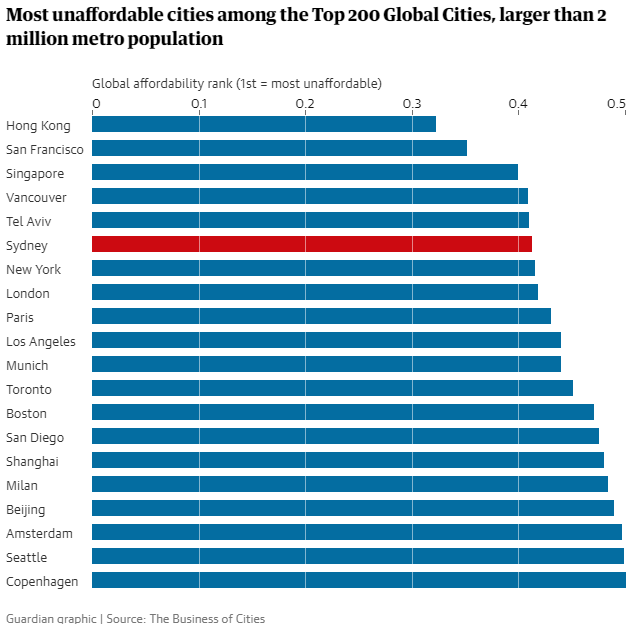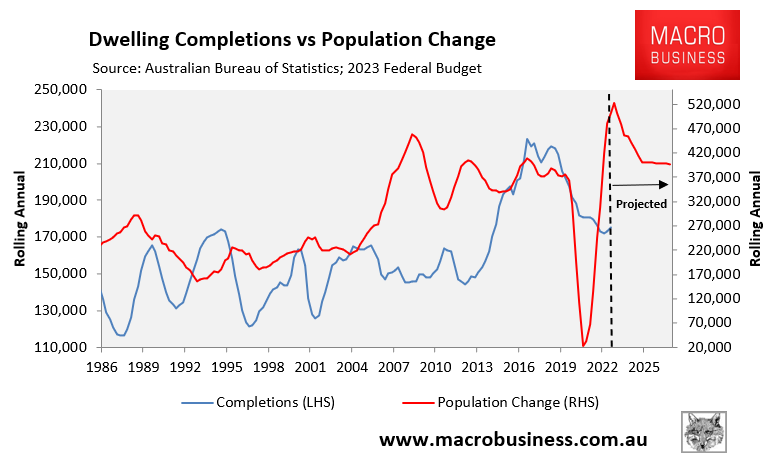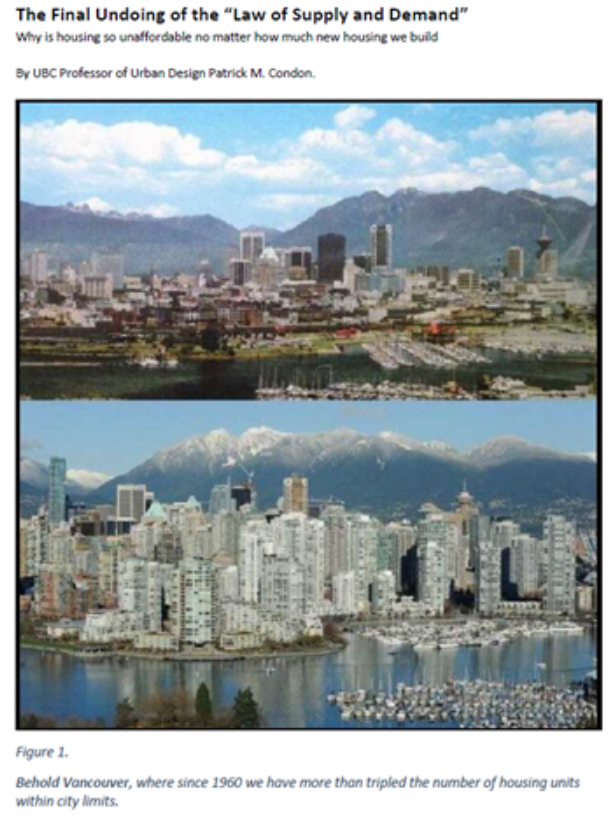The median dwelling price in Sydney has risen to 13.3 times the median income, while 35.3% of renters are estimated to be in housing stress.
Accordingly, CEO of the developer lobby the Committee for Sydney, Eamon Waterford, says the level of housing stress requires a major rethink from politicians and the public.
The Committee’s research shows that Sydney is now the world’s sixth-least affordable city, ranking behind Hong Kong, San Francisco, Singapore, Vancouver and Tel Aviv:

Waterford has called on the public to become more vocal YIMBYs that lobby for high density development in established suburbs:
“Support growth in your local community, become a yimby, show up to council meetings and speak on behalf of development that’s going to see significant numbers of houses being built into communities”, Waterford said.
“Speak to your neighbors about the existential challenge, recognise that building housing for people that are different to you is a really good outcome for your community because that diversity breeds vibrancy”, he added.
Why only look at the supply-side of the housing equation, Eamon Waterford? And only superficially?
Australia has had one of the highest rates of home construction in the developed world:

Source: OECD Affordable Housing Database
We also have one of the highest shares of construction workers in the OECD:

And we ramped up housing supply massively last decade:

Yet we have found ourselves short of housing because of the federal government’s extreme and reckless immigration program, which has ensured housing demand forever runs ahead of supply:

So, why not moderate immigration to a level commensurate with the nation’s ability to supply houses and infrastructure, as well as safeguard the natural environment?
That is what the majority of Australians want, after all. They categorically do not support the types of mass immigration Australia experienced since 2005 and is projected to experience over the next 40 years.
Australia’s housing supply problem has primarily been caused by excessive immigration-driven demand, not an inability to build homes.
Besides, simply demolishing our major cities into high rise apartments won’t solve the housing problem.
It certainly hasn’t worked for Vancouver, which is one of the world’s most expensive housing markets – even worse than Sydney.
As Patrick Condon (James Taylor chair in Landscape and Livable Environments at the University of British Columbia’s School of Architecture and Landscape Architecture and the founding chair of the UBC Urban Design program) points out, Vancouver completely transformed by tripling its housing via high density infill, yet housing affordability got worse:

“This was an unreservedly good thing – in all but one respect. This giant surge of new housing supply did not lead to more affordable housing as we all hoped. Somehow, confoundingly, the reverse happened.”
“During this period, Vancouver housing prices quadrupled, rising faster and further than in any other North American centre city”.
“Currently, Vancouver home prices are North America’s highest and the third-most expensive globally (behind only Hong Kong and Sydney)”.
“Vancouver-area wages have stayed stubbornly flat (inflation-adjusted) while housing prices (also inflation-adjusted) have climbed by 400%”.
Vancouver became North America’s least affordable housing market, and became one of the least affordable housing markets in the world.
Vancouver’s rents are also the highest in Canada by a significant margin:

That’s hardly a ringing endorsement of YIMBYism, nor a great outcome if affordability is your objective, is it?
It is also no coincidence that Vancouver, like Sydney and Melbourne, has also been flooded with overseas migrants.
In other words, don’t be like Vancouver. Cut immigration to sensible levels instead.

